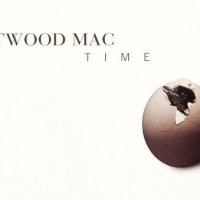Fleetwood Mac’s Rumours is one of the truly iconic records of the 1970s. Like Led Zeppelin’s IV, Pink Floyd’s Dark Side Of The Moon and the Eagles’ Hotel California, Rumours spent a lot of time spinning on turntables everywhere … including those of FM radio.
I don’t think I ever owned a copy of it back in the day … and yet somehow I knew all of the songs. You could call this phenomenon “pop music osmosis.”
Along with radio and ‘scene’ dominance, Fleetwood Mac, like their 1970s colleagues (cripes, is it OK to use the word ‘colleague’ when describing a rock band? it feels kinda weird) was a textbook case of the collective whole being far greater than the sum of its parts. Something just clicked for them in that final ‘classic’ lineup. So now I fast forward to the year 2003, and Fleetwood Mac releases Say You Will. It’s many years down the road and the classic lineup has changed. Christine McVie has retired. What would this do to the sound? The chemistry? The balance? With no sunny McVie tunes in the mix, would this record be too dark? Too weird?
As it turns out, Say You Will was neither too dark nor too weird. What it was: a great pop record.
Things were certainly different though. With McVie gone, the songwriting was now evenly split between Lindsey Buckingham and Stevie Nicks. Also, Buckingham’s guitar moved forward to take over as the main instrument of texture. This is a good thing: Lindsey’s playing here is amazing. Pick a style and it’s there: from silky folk fingerpicking to sometimes jazzy fills to blistering lead work to near metal riffing … all of this wrapped around Stevie Nicks’ still gorgeous voice.
What’s not different? The songwriting is still definitely quite strong. And Stevie and Lindsey are still referring to each other … or maybe they’re not. See … the thing is, with Fleetwood Mac’s soap-opera history, we’ll always think that Stevie’s talkin’ about Lindsey. Also not changed is that signature vocal harmony. One of the funny things about the after-effects of “pop music osmosis” is that you tend to hear ‘phantom’ voices. So even on the tunes where Christine McVie is not guesting on background vocals, you hear them anyway. Your brain just wants them there.
Oh, I forgot to mention John McVie and Mick Fleetwood. Maybe they’d prefer it that way … because as both members of the less-is-more club they accomplish what they always have in the past: laying down a solid base over which each tune rides.
Did Say You Will take a place next to the “great” Fleetwood Mac records (in my mind that would be Fleetwood Mac, Rumours, and Tusk)? I think so. In some ways, it was every bit the record that Tusk was … but without the baggage of the heavy expectations caused by being the followup to Rumours.
[amazon_enhanced asin=”B00008PW3Q” container=”” container_class=”” price=”All” background_color=”FFFFFF” link_color=”000000″ text_color=”0000FF” /] [amazon_enhanced asin=”B000002KGT” container=”” container_class=”” price=”All” background_color=”FFFFFF” link_color=”000000″ text_color=”0000FF” /] [amazon_enhanced asin=”B000002KLZ” container=”” container_class=”” price=”All” background_color=”FFFFFF” link_color=”000000″ text_color=”0000FF” /] [amazon_enhanced asin=”B000002KKC” container=”” container_class=”” price=”All” background_color=”FFFFFF” link_color=”000000″ text_color=”0000FF” /] [amazon_enhanced asin=”B0009WQ3P0″ container=”” container_class=”” price=”All” background_color=”FFFFFF” link_color=”000000″ text_color=”0000FF” /]
- Why the Rolling Stones’ Harrowing ‘Gimme Shelter’ is Still Revealing New Depths - November 18, 2024
- How Talking Heads’ ‘Fear of Music’ Opened Up a World of Art and Sound - August 5, 2024
- How Deep Cuts Propelled Bruce Springsteen’s ‘Born in the U.S.A.’ - June 4, 2024


